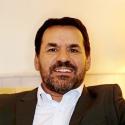2022 Evangelism Network
- Image

Europe is one of the most relativistic and strategic continents on the earth. Europeans desperately need to hear and understand the life-giving word of truth - the Gospel. How can this message be shared relevantly, biblically, and credibly? Not all Christians are specifically called to be evangelists (Ephesians 4:11), but everyone is called to be involved in the work of evangelism (1 Peter 3:15, 2 Timothy 4:5). Therefore the curriculum is designed for evangelists, pastors, and laypeople who want to be equipped to be more effective in evangelism. This Network brings together some of the best evangelists from across Europe to provide fresh understandings, best practices, and biblically rooted insights. Prior preparation will be set for all applicants.
Applicants should be evangelists, pastors, and lay evangelists who want to be equipped to share the gospel messages in ways that are relevant, biblical, and credible. The Network brings together some of the best evangelists from across Europe to provide fresh understandings, best practices, and biblically rooted insights.
Network Leadership
Network Speakers
Naomi "Nay" Dawson works with IFES Europe as their Regional Training Co-ordinator, training staff and students across Europe and working on the senior European leadership team for the charity. Naomi is the… Read more
Simon Edwards is a speaker and writer. He worked as a lawyer in Australia before moving to the UK to study at OCCA and later Oxford University. Simon has spoken on university campuses, including Oxford, Cambridge, Hong Kong, Oslo, and Queensland; in banks, businesses, and government institutions… Read more
John MacKinnon is the Director of Evangelism for The Word 121 www.theword121.com He has served as an itinerant evangelist, as Lead pastor of a local church and has brought leadership to his passion for the revitalisation of other churches. In his current… Read more
Stephen McQuoid grew up in Ethiopia where his parents were missionaries. He then lived in Ireland where he qualified as a nurse before going on to study theology, gaining a variety of degrees including an MTh and PhD in theology. He is the author of 16 books on subjects such as discipleship,… Read more
Tom Price is a lecturer at OCCA The Oxford Centre for Christian Apologetics and was made an Archbishop’s Evangelist in 2019. He has experience and interest in outreach, cultural engagement, Bible teaching, and discipleship. He has degrees in Philosophy and Christian Apologetics and is currently… Read more
Peter Saunders was born in New Zealand and originally trained as a General Surgeon, before serving with the Africa Inland Mission in Kenya and completing two years mission training at All Nations Christian College in the UK. Since 1992 he has worked in full-time Christian ministry first with… Read more
Emil Shehadeh was born in Israel and educated mainly in the UK, achieving BSc Hons (Medical Biology), MSc (Biochemistry), MB ChB (Medicine), and a Diploma in Dermatology and MRCGP, as well as a DPGT and PhD in Islamic studies. Growing up in Israel, he accompanied his parents all over Galilee,… Read more
Network Programme
Sunday, 22 May
Thinking about worldviews is important because of the power and effect of a worldview, but what are the different elements of a worldview and how can we uncover them? How can we help people decide which worldview is a good one and which worldview is a bad one? This seminar will give tools and teach practical skills that will enable people to have helpful and enjoyable conversations about our deeper beliefs with those around them.
Public evangelism is a daunting task for many, yet how many evangelistic events have you attended in the last few years that have had women speaking? How many women do you know who are confident speakers and have opportunities to speak evangelistically? Why are so few women speaking in this context – and what can we do to help women be courageous? Reflecting on establishing Passion for Evangelism, a network to raise up female evangelists, this session will share ways to support women in evangelism and raise up a new generation of creative, public evangelists.
Monday, 23 May
What are the main obstacles to reaching Muslims for Christ? We will discuss styles in communicating the Gospel and discuss what pitfalls one must avoid in engaging with Muslims for Christ. Recent research findings will be discussed, and real-life examples will be presented. This will be an interactive session, with opportunities for comments and questions.
Do you find it challenging to talk about Jesus with people who don’t go to church? Are you unsure how to go about sharing your faith in a culture in which belief in God or the Bible is often viewed as intellectually or morally questionable, and in which conversations about religion are often viewed as divisive or offensive? This session will introduce an engaging, conversational approach to evangelism that works effectively in today’s cultural context and that can be used in our everyday encounters with others.
Tuesday, 24 May
One of the current challenges that confronts evangelists is the advent of critical theories such as critical race theory and queer theory. While these intellectual and cultural trends emerge from the academy, they drip down into popular culture and impact almost every part of life. Post Christian Europe is particularly vulnerable to this influence. This session will briefly summarise the origins of these critical theories before looking at how they directly affect the work of gospel proclamation. Practical examples will be given to illustrate the issues; we will then look at practical ways in which evangelists can navigate this culture and make the gospel accessible. In particular, we will look at the ‘tone’ of our evangelism and how we can share truth in this hostile and reactionary environment.
In this session, the Evangelism Network will facilitate some space to share some of our experiences of evangelism. Even if we often work alone, hearing stories from others can inspire us, and honest conversations about the struggles and challenges can lighten the burden. We will invite Network participants to share real stories of the ups and the downs of evangelism.
Wednesday, 25 May
Our salvation is the gracious gift of the sovereign, trinitarian God who loves us and gives himself for us. As we seek to fulfill the expectation of Scripture in evangelism, we are completely dependent upon the empowerment of the Holy Spirit who delights to magnify Jesus in our lives. In this session, we will discover afresh the eternal truth that in giving us the Holy Spirit, God gives us nothing less than himself and rejoice in the confidence that being in step with the Spirit brings to anyone who wants to make much of Jesus in their daily lives.
There is no better training manual for communicating the Gospel than the Bible, and the book of Acts is a special goldmine for good guidance. In Acts 17 the Apostle Paul addresses people with a worldview and values at variance with his own. They initially write him off as a ‘babbler’ who is foolish and misguided, but he engages them successfully, resulting in several key conversions. This session explores five key lessons drawn from this passage to apply to our own practice: Go where the people are; use words they understand; give opportunity for discussion; start from where they are at, and employ the Identify, Confront, Invite model.







